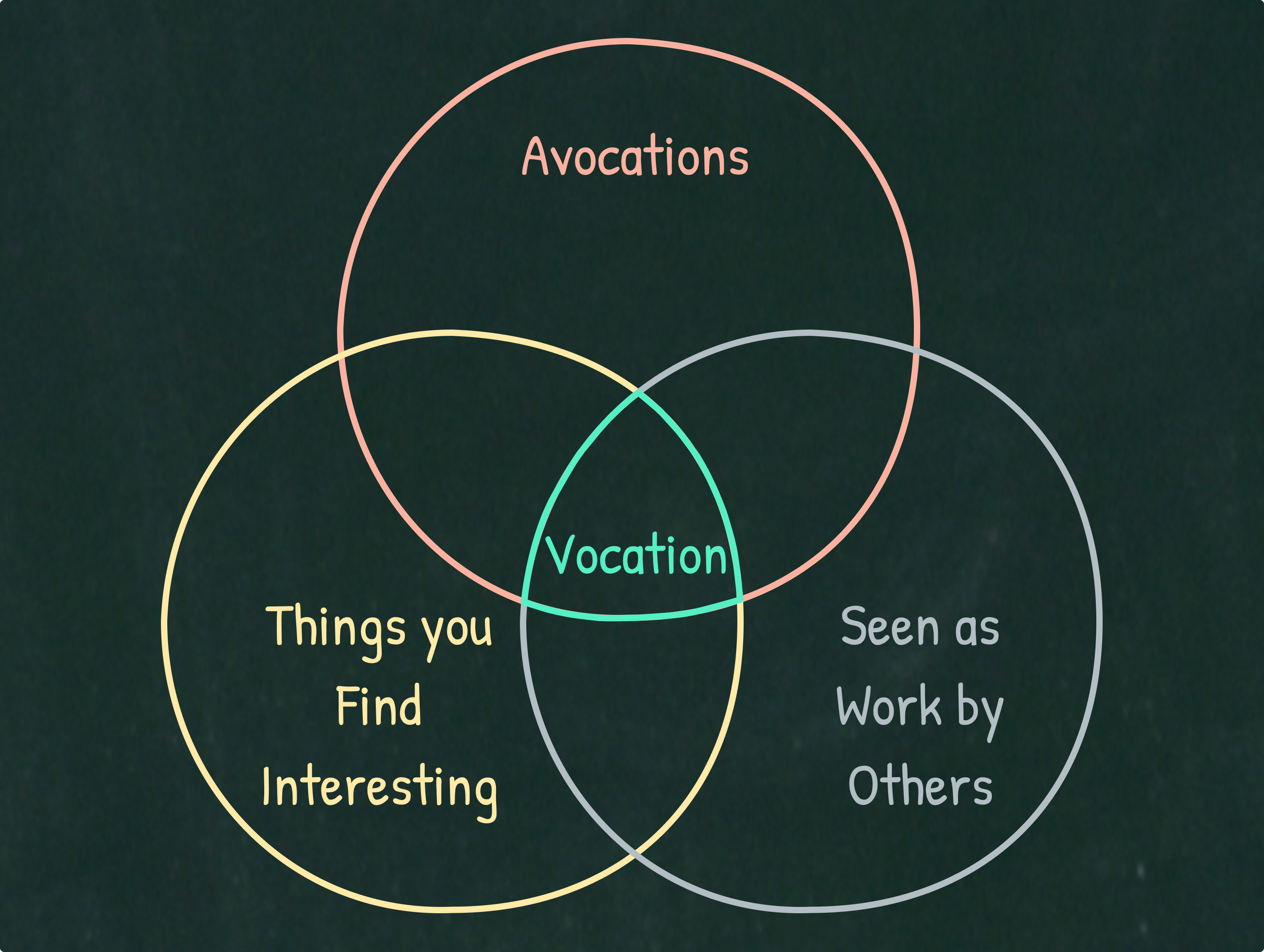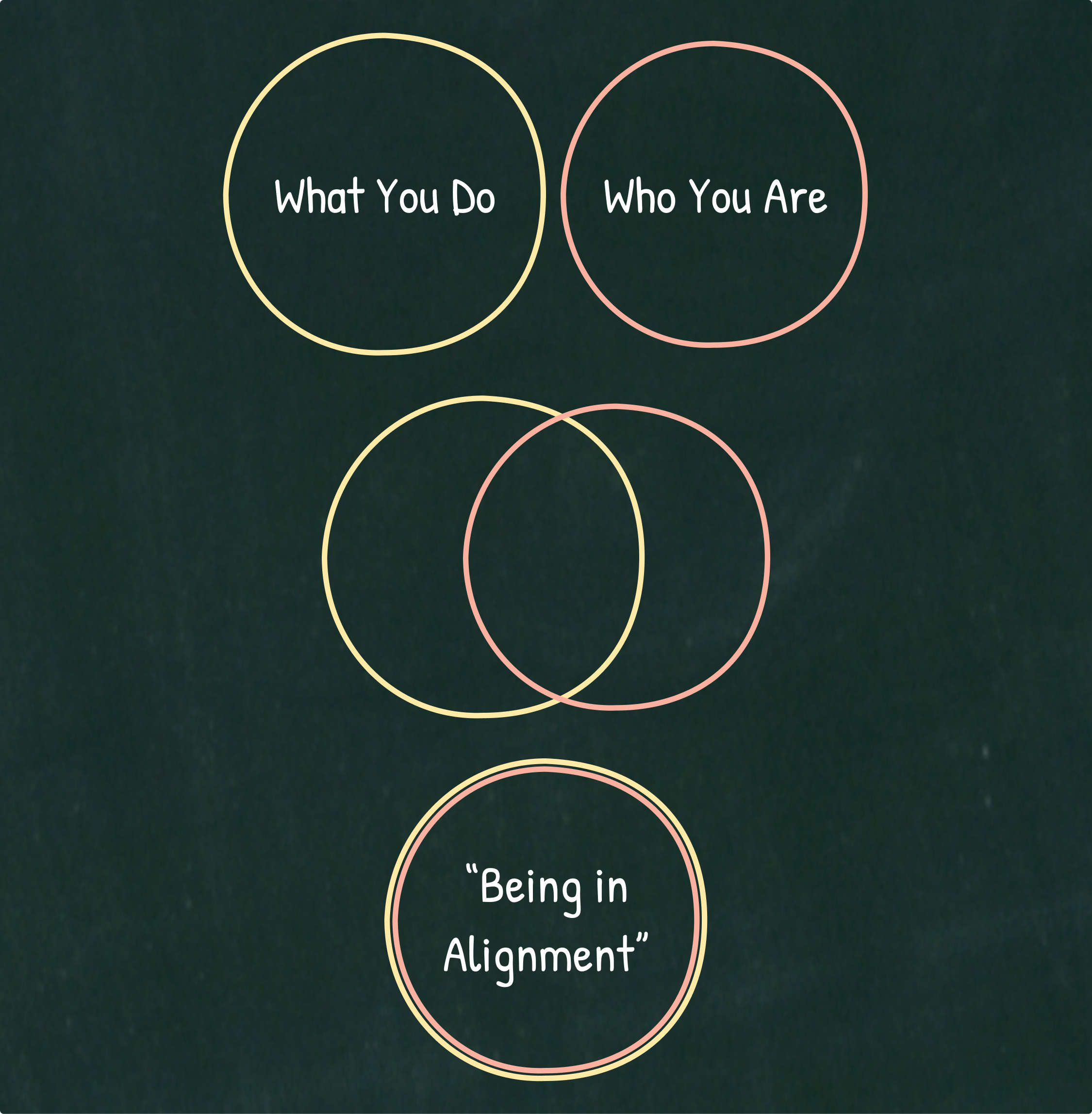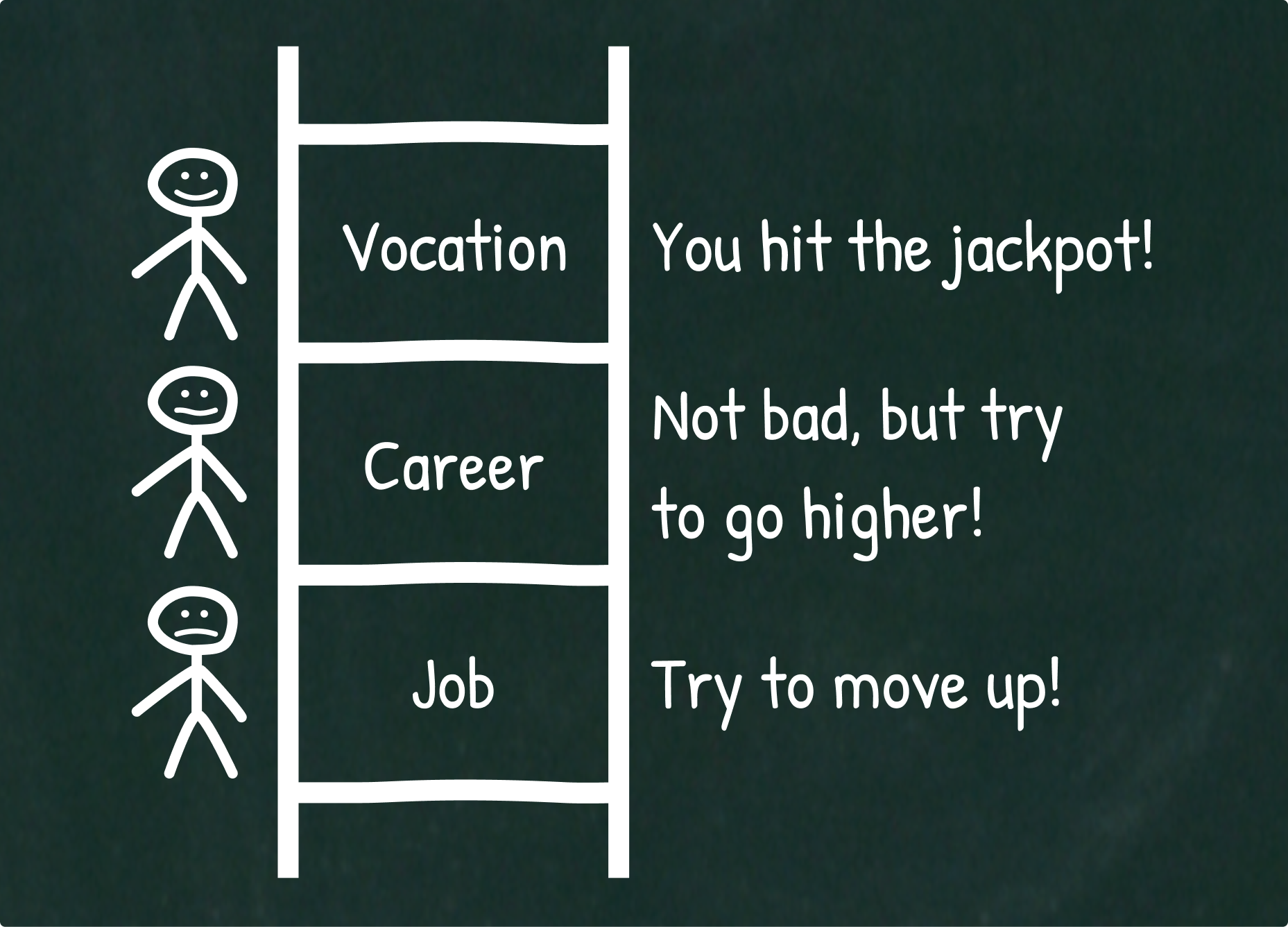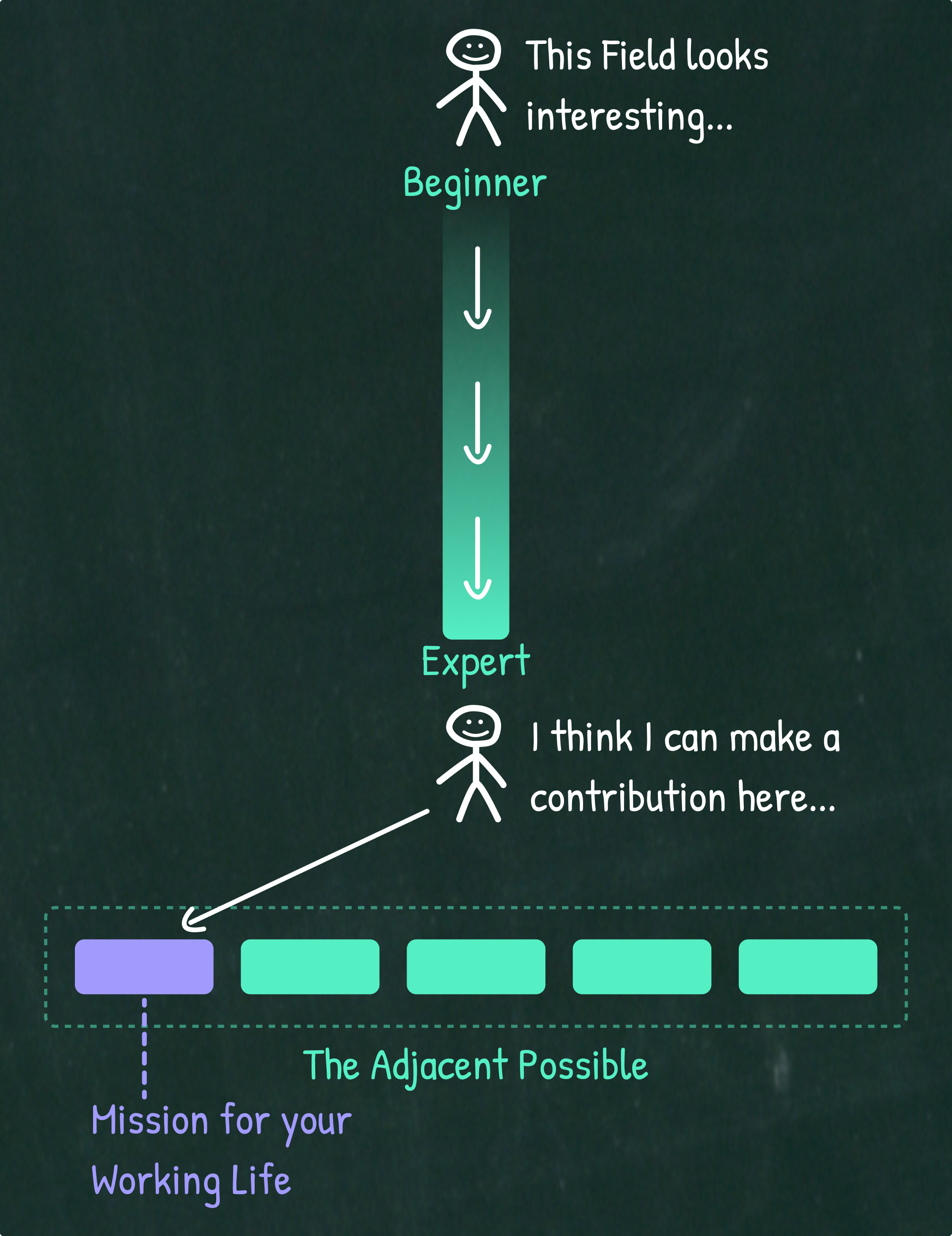Table of Contents
 Young professionals by and large want to work for a company that shares their values and aligns with their passions. However, this concept of your work aligning with your passion(s) is new…
Young professionals by and large want to work for a company that shares their values and aligns with their passions. However, this concept of your work aligning with your passion(s) is new…
Since the dawn of the Industrial Revolution, your vocation was how most people put bread on the table. And your avocation was what brought you joy. The two were not synonymous and the idea that your vocation should be guided by what aligns with your passions was a foreign concept.
So, how did this change occur? There are at least two major forces worth considering:
1. As countries became richer, people had more options as far as what to work on. To see this clearly, let’s analyze it at the extremes: If you are in pure survival mode, you will do anything to put bread on the table. Whereas, if you have all your basic needs covered (without needing to work), you will obviously choose to do something you enjoy.
2. As people became less religious, the human necessity to find meaning in life remained unchanged. As Carl Jung observed in 1953, “You can take away a man’s gods, but only to give him others in return.” Thus as formal religious structures, which historically gave meaning to one’s life, fell away in the late 19th century, a void was created—which led us to seek this meaning in our working lives.
Okay, now that we’ve gotten that deep stuff out of the way, let’s clarify: The fundamental difference between vocation and avocation (also known as a hobby) is the end of the activity.
In the case of a vocation, you do it for the sake of others. Not for yourself. Your vocation is a means to an end outside of yourself—which is the value creation for a group of people (who want your service).

In the case of an avocation, you do it for its own sake, just for the sheer joy it brings you. Not for anyone, nor the intention of making money from it. Your avocation is a means to an end inside of yourself—which is your subjective value of the activity.

Can an Avocation Lead to a Vocation?
We have seen that an avocation is very different from a vocation. But an avocation—or even many avocational activities—can be a trait of your vocation. You can have a vocation (creating value for society) while intrinsically enjoying some (or even most) parts of your work.
You might ask: “How can I know in advance if a specific avocation can turn (immediately or eventually) into a vocation?” And while there isn’t a deterministic methodology to give you the answer, there are two simple questions that will significantly help:
1. Does it feel like play to you, but look like work to others?
This is the main filter that Naval Ravikant (founder of AngelList) uses to figure out if a specific hobby (avocation) can transmute into putting bread on one’s table. [Naval Ravikant on Clubhouse]
Naval even tweeted this question…
What feels like play to you, but looks like work to others?
— Naval (@naval) December 10, 2020
And the replies show real-life examples. These were the ones that I found most interesting:
-
- Dan Go: “Working out.”
- Smoke Wallin: “Building Companies.”
- Paul Graham: “Some kinds of programming, and some kinds of writing. But only some kinds.”
- Kyle Tibbitts: “Helping visionary founders take their products to market and build a marketing machine to grow the business.”
- John Mihaljevic: “Equity investing, especially the process of finding undiscovered gems among the ~50,000 public companies out there.”
On the other hand, some examples of avocations that likely wouldn’t be seen as work by others could be:
-
- Travel blogging.
- Playing video-games.
- Making cakes.
- Playing the guitar.
2. Do you find it interesting?
Paul Graham (founder of YC) said it best in his essay “How to Work Hard”:
The best test of whether it’s worthwhile to work on something is whether you find it interesting. That may sound like a dangerously subjective measure, but it’s probably the most accurate one you’re going to get. You’re the one working on the stuff. Who’s in a better position than you to judge whether it’s important, and what’s a better predictor of its importance than whether it’s interesting?
The good news is that if you find a hobby that meets the first requirement (looks like work to others), it is very likely that you will also find it interesting. As we saw in the real-life examples—building companies, investing, and some kinds of programming and writing—I’m sure these activities spark curiosity in the people that “find them like play.”
So if you ever have a hobby that fulfills these two questions, and you actually want to make that hobby a vocation, it’s definitely worth it to try to make it a vocation.

How to Find Your Vocation
To find your vocation, you need to find work with a mission to which you are fully committed. And the only way to be fully committed, is to be in personal “alignment” with that mission.
Mohnish Pabrai (founder of Pabrai Funds and the Dakshana Foundation) perfectly stated the importance of being in alignment:
If you get an incongruence between who you are internally and who you are [in terms of action] externally, you will not go far in life.
[So] You have to get things in perfect alignment, where your internal wiring is exactly the way you are externally.

So, people in alignment get much farther in life. And the reason for this is that when you are fully committed to a mission, you can endure almost any adversity.
He who has a why to live can bear almost any how.
– Nietzsche (German philosopher)
[Excerpt from his (translated) book: Twilight of the Idols]
There is also a famous quote from Warren Buffet, that I use to determine if I’m in alignment:
The big question about how people behave is whether they’ve got an Inner Scorecard or an Outer Scorecard. It helps if you can be satisfied with an Inner Scorecard. I always pose it this way. I say: ‘Lookit. Would you rather be the world’s greatest lover, but have everyone think you’re the world’s worst lover? Or would you rather be the world’s worst lover but have everyone think you’re the world’s greatest lover?
– Warren Buffet (Co-founder, Chairman and CEO of Berkshire Hathaway)
[Excerpt from Alice Schroeder’s biography: The Snowball]
Not Every Job Is a Vocation
A job may or may not be a vocation for someone. Having a job only means that you are getting paid for doing something. Having a vocation means that you are getting paid, but you are also working on a mission to which you are fully committed (you are in alignment).
Obviously, it’s much better to have a vocation than it is to just have a job. People who do things only for a salary are destined to be unfulfilled, and (as mentioned previously) much less successful than mission-driven people.
I would take a missionary over a mercenary any day. Mercenaries want to flip the company and get rich. Missionaries want to build a great product or service. And one of those great paradoxes it’s usually the missionaries who end up making more money anyway.
– Jeff Bezos (Founder of Amazon and Blue Origin)
In your prayers substitute “Protect us from evil” with “Protect us from those who improve things for a salary.”
– Nassim Nicholas Taleb (Author, Former Options Trader, and Risk Analyst)
[Excerpt from his book: The Bed of Procrustes]
Jeff Bezos went a bit further into the classification of the kinds of work, arguing that you can have a job, a career, or a vocation—which he refers to as a “calling.”
I always advise our young employees (and my kids too): You can have a job, you can have a career, or you can have a calling. And if you can somehow figure out how to have a calling… you have hit the jackpot! Because that’s the big deal. And most people don’t ever get there. You’re very lucky if you have a career, [since] a lot of people end up with [just] a job.
– Jeff Bezos (Founder of Amazon and Blue Origin)
[Source: The Bush Center]
In his speech at Palo Alto High School (1996), Steve Jobs made an insightful comparison between a career and a vocation.
Don’t be a career. The enemy of most dreams and intuitions, and one of the most dangerous and stifling concepts ever invented by humans, is the “Career.” A career is a concept for how one is supposed to progress through stages during the training for and practicing of your working life.
There are some big problems here. First and foremost is the notion that your work is different and separate from the rest of your life. If you are passionate about your life and your work, this can’t be so. They will become more or less one. This is a much better way to live one’s life.
[Excerpt from the book: Make Something Wonderful]

So, even though a career is significantly better than simply having a job, it’s still not even close to the level of fulfillment enjoyed by those who have a vocation. And it’s not hard to look around and realize that most people only have jobs or, at best, careers. They are doing things mainly for a salary. And the reason for this is quite simple but also paradoxical: To work on a mission you care about, you first need to be on the cutting edge of your field or niche.
To Find a Mission, You Need to Be on the Cutting Edge
Being on the cutting edge of your field is essential to find a fulfilling mission for your work.
Cal Newport (author of So Good They Can’t Ignore You) researched people who work on important and fulfilling missions. He found that all of them were experts in their field (or niche) before they identified a fulfilling mission for their work, and successfully executed it. He also found cases in which people identified fulfilling missions, but they didn’t have the necessary expertise to execute them successfully—so they would end up jobless and disappointed.
Newport argues that exciting and fulfilling missions are similar to scientific and technological breakthroughs, in that you need to be on the cutting edge to see exciting (but realistic) missions or innovations to work on.
A good career mission is similar to a scientific breakthrough—it’s an innovation waiting to be discovered in the adjacent possible [the next possible frontier from the current cutting edge] of your field. If you want to identify a mission for your working life, therefore, you must first get to the cutting edge—the only place where these missions become visible.
– Cal Newport
[Excerpt from his book: So Good They Can’t Ignore You]

How to Get to the Cutting Edge Quickly
Besides working hard, there are two ways to get to the cutting edge of a field or niche quickly:
1. Have a natural aptitude for that field so that you can excel faster. This is the reason Jeff Bezos quit his Physics degree at Princeton—he realized he wasn’t wired to become a great theoretical physicist [source]. So don’t get trapped by that silly dogma that preaches that “being a quitter” is always bad; there are absolutely times when it’s best to quit and start over. And, as Bezos also says, “there are a thousand ways to be smart”. [source]
2. Have a genuine curiosity for that field, since it will naturally make you work harder.
A deep interest in a topic makes people work harder than any amount of discipline can.
– Paul Graham
[Excerpt from his essay: “How To Work Hard”]
And while these factors will make you an expert in a given domain faster, it will still take a lot of time to get there—likely several years or even a decade. So you have to be fast on your execution and learning, while also being patient with the results.
Impatience with actions, patience with results. https://t.co/d5BOxcbLcg
— Naval (@naval) June 18, 2018
A 3 Step Guide to Finding Your Vocation
1. Identify an activity you enjoy (an avocation) that you also find interesting and which looks like work to others. If you can’t identify any avocation that meets these two requirements, then simply start working at something you are relatively good at, and that you find interesting. Don’t choose something based on how well it pays—that’s how you end up with just a career (instead of a vocation).
2. Once you work your way into becoming a domain expert in your field or niche, you can identify a mission for your working life (a mission, which you are in personal alignment with and fully committed to).
3. Finally, once you become a mission-driven worker, you will have found your vocation or “calling.”
Good luck!
Key Takeaways – Vocation vs. Avocation
- An avocation (or several avocational activities) can be a trait of a vocation.
- An avocation can lead to a vocation, provided it looks like work to others and you find it interesting.
- Finding your vocation is finding a mission for your work to which you are fully committed. And to find the right mission for your work, you must first get to the cutting edge of your field or niche.
Want More? Check Out These Sources
If you liked this piece and want to learn more on how to find your vocation, check out this reading and suggested content list.
- The End of Jobs: Money, Meaning and Freedom Without the 9-to-5 by Taylor Pearson.
- Global Income is Rising
- The Industrial Revolution and the Christian Family
- Naval Ravikant on Clubhouse
- How To Work Hard (Essay by Paul Graham)
- Mohnish Pabrai’s Lecture at Boston College (2016)
- Twilight of the Idols by Nietzsche
- The Snowball by Alice Schroeder
- Fireside Chat with Jeff Bezos & Werner Vogels
- The Bed of Procrustes by Nassim Nicholas Taleb
- The Bush Center (Interview with Jeff Bezos)
- Make Something Wonderful (Steve Jobs in his own words)
- So Good They Can’t Ignore You by Cal Newport
- Jeff Bezos tells the story of how he discovered he was not going to be a good physicist.
- Jeff Bezos on all the ways to be smart.
